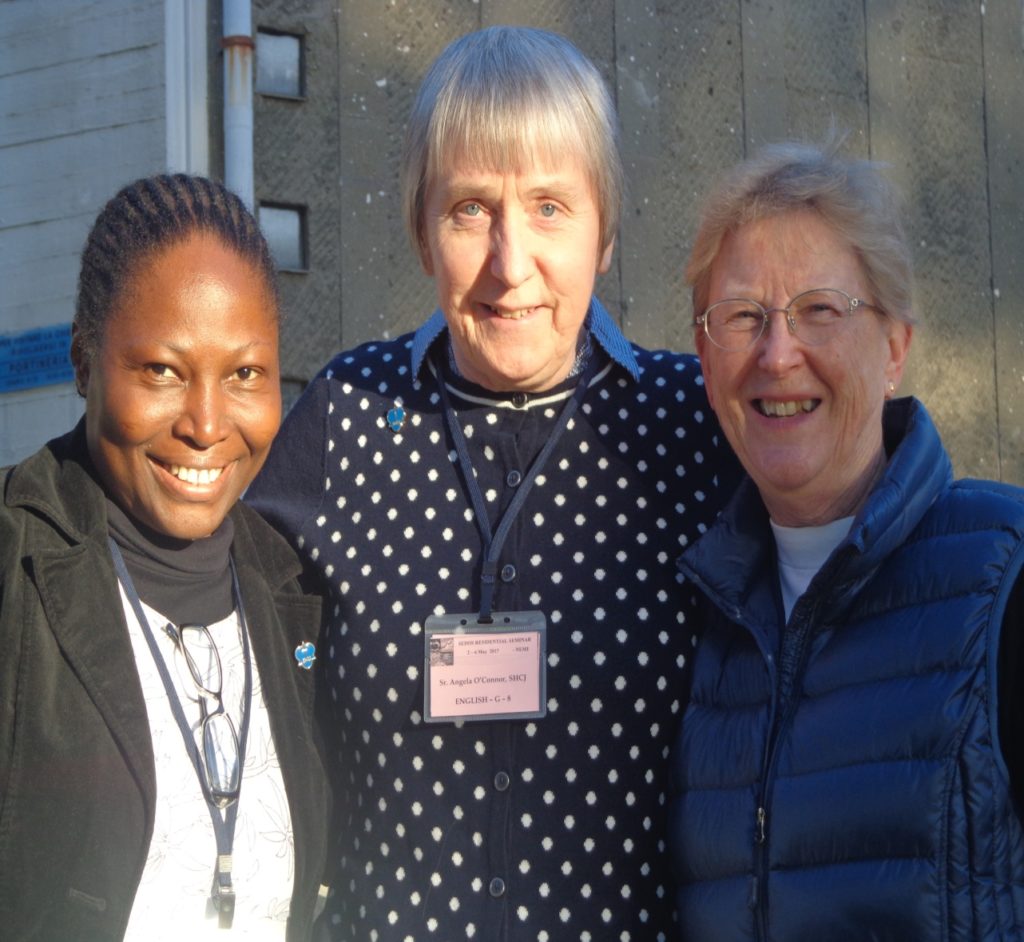30 May 2017
Recently, Holy Child Sisters Oyidu Okwori, Angela O’Connor and Carol Ann Knight joined 140 women and men from 42 religious congregations for the SEDOS seminar ECONOMY at the Service of Mission. There were five speakers and a team of panelists from each of the five continents. SEDOS is the organization Service of Documentation and Study on Global Mission.

We were reminded that the greatest cultural influence in dealing with money is our family of origin and that everyone in a religious congregation, not just those whose ministry is finance-related, needs educating and updating about money. It was emphasized that our financial resources belong to the institution for the service of others, especially those who are poor.
Good financial management and planning enable communities to make the best possible use of their resources and can provide new opportunities for mission. The call to caution and discipline on the part of both service givers and recipients was summed up in the statement, ‘Trust is good but control is better’!
The notion of sustainability goes back to a UN conference in 1972, in Stockholm: we must take only what we need or can use, then replace it. Integral ecology raises questions of justice regarding complex issues, with a call for the judicious use of resources now and for future generations. c/f Laudato Si 65/66
Commitments to an economy of sharing are to be promoted in religious institutions, at a time when the Western world is strengthening borders and in all parts of the globe there is difficulty in welcoming the stranger. Poor people are viewed as responsible for their own situation, whereas prophets see them as central to community. If an institution no longer speaks to others about the poor it might as well close.
Religious institutions are not exempt from corruption, the abuse of entrusted power for private good. When controls are weak or do not exist, opportunities for mismanagement surface and so there must be requirements for transparency in complying with rules/guidelines, accompanied by sanctions.
There was plenty of time to consider best practices, especially in the complementary work of a bursar and a financial manager. We are fortunate in the Society that we are aware of and implement much that was discussed, however, there is always room for development in our thinking and actions.


I strongly agree.
JMG
Dear Oyidu, Carol Ann and Angela. Thank you for this synopses of that great meeting you all attended in Rome at the beginning of May 2017. It is good to get some idea of what it was about and to know that the Provincial Bursars of our 3 Provinces, Africa, America and Europe were all able to attend and meet up with many other international Religious Orders and share and learn from one another what is best practice in relation to how we spend the money that we earn or is given by donations to be spent on ministry to understand the Economy of sharing.
Thank you all and good luck and best wishes in your new posts for the 3 Provinces.
My love, prayers and support will be with you all.
Maria xxx